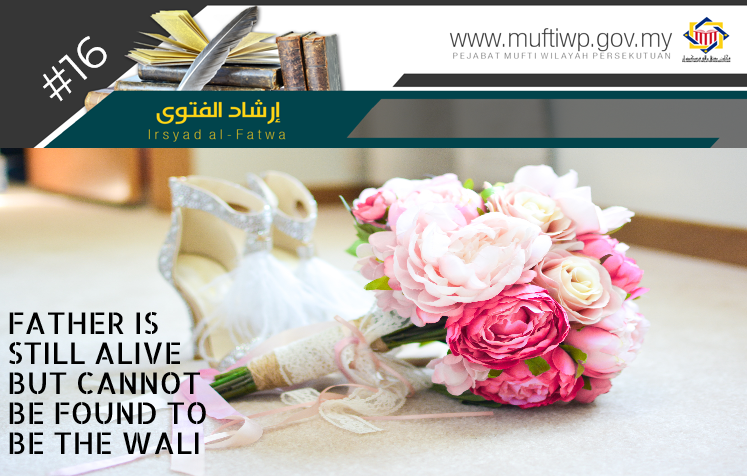Question:
If a woman still has her brother or uncle, is it permissible for them to be her wali even if they are certain and sure that the wali (father) is still alive but cannot be found?
Answer:
Alhamdulillah, praise and thanks to Allah for the countless blessings He has blessed us all with. Blessings and salutations to the Prophet Muhammad PBUH, his wives, his family, companions and all those that follow his teachings to the day of judgement.
It is impermissible, certainty cannot be abrogated according to syarak. This is in accordance with an Islamic legal maxim:
الْيَقِيْنُ لاَ يَزُولُ بِالشَّكِّ
Certainty cannot be abrogated by doubt.
Thus, it is suggested that it should be broadcasted through media to track the wali through acquaintances, friends, family members, relatives, neighbours and others. Next, the case should be presented to the shariah court so that the judge could decide on the best solution for this case.
We would like to explain regarding the issue of wali ghaib, if there are several wali and the nearest wali is at two marhalah or more from the bride, then the right of wali is not transferred to the next wali, but it is transferred to the Sultan. This is the opinion of madhhab Syafie.
This is taking into the consideration that the right of wali stays with the nearest wali ghaib. When he is unable to fulfil his responsibility, then the right of wali is replaced by the Sultan. However, if the nearest wali is less than two marhalah, then the Sultan cannot officiate the wedding except with his permission. The reason is the distance is short and he can attend it himself or send his proxy, the same as if he is a resident.
When the wali is absent, then the right of wali is transferred to the Shari’a judge, for he is appointed to maintain the interests of Muslims. Being a wali for a bride when her wali is absent is an obligated maslahah.
Wallahua’lam.


